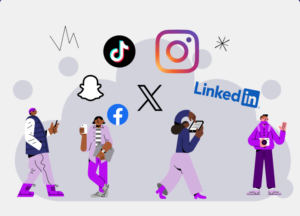Keyword research for events is an important process for your event SEO. It helps you find relevant search terms for events.
Understanding search intent is crucial, as it reveals the reasons behind people’s searches. Common intents include searches that are seeking answers, looking for specific websites, ready to make a purchase, comparing option, and seeking location-specific results.
To conduct keyword research, start by creating a topic list based on your audience’s interests. Then expand it with potential keywords and phrases. Use tools like Google Search Console or paid options like SemRush to research keywords. Focus on multiple word keywords for better ranking opportunities.
Event businesses can benefit from ranking for specific event-related keywords. Effective keyword research enhances your website’s visibility in search results and attracts relevant traffic which can be a huge opportunity for events.
Table of Contents
1. What is Keyword Research?
Keyword research is the process of finding all of the relevant search terms that people type into Google and other search engines that are relevant to your business and your customers.
For events, Google can be a powerful platform for attracting attendees. We have another blog post specifically on how to get your events to rank at the top of Google, which we’ve helped thousands of events do. But in this post, we’re focusing on your webpage and listings.
How do you even know what keywords (searches) you should be optimizing for.
The power of keyword research lies in better understanding your target market. By performing keyword research, you gain insights into what people are searching for, search volumes, location-based data, keyword ranking difficulty, and more.
2. Understanding Search Intent for Events
A key part of SEO is understanding search intent. Search intent for events can also be different than it is for businesses.
Search intent refers to the reason behind a person’s search on the internet. It’s about understanding what they are looking for when they type something into a search engine. There are different types of search intent:
- Informational Intent: When someone wants to find answers or learn about something. For example, searching for “how to tie a tie” means they are looking for instructions or information.
- Navigational Intent: When someone wants to go to a specific website or webpage. Instead of typing the website address directly, they use a search engine to find it. For example, searching for “Facebook” means they want to visit the Facebook website. We also call this “Branded Search” which, if you track it well, can indicate other marketing efforts are working.
- Transactional Intent: When someone wants to make a purchase or complete a specific action online, like buying a product or signing up for a service. Keywords like “buy,” “discount,” or “coupon” indicate transactional intent. These are very valuable keywords to focus on because the person searching is ready to buy.
- Research Intent: When someone is researching products or services before making a purchase decision. They compare options, read reviews, and gather information to help them choose. Keywords like “best,” “top-rated,” or “review” suggest commercial investigation intent. These are also valuable. The person might not be ready to buy right now, but they are starting to inform their decision.
- Local Intent: When someone is looking for something specific to their location, such as local businesses, services, or events. They use location-specific keywords like city names or “near me” to find relevant results. A very popular keyword for events are “things to do in [city] this weekend” and “[City] events”.
Understanding search intent is important because it helps businesses create content that matches what people are looking for. Provide relevant information and meet user expectations to improve your events’ and organization’s visibility in search results.
3. How to Do Keyword Research for Events
Step 1. Create a Topic List
Before you start your keyword research, it’s essential to have a clear idea of who your customers are and their goals. Focus on your audience first and then look for keywords to make your campaign more successful.
Start a speadsheet and start writing out what you think your customers are looking for when they come to your website or event pages.
Consider factors like local or virtual events, social, sports, or professional events, entertainment, community engagement, causes, and career improvement. Are your events kid friendly, feature beer or wine, indoor or outdoor. These topics will be the foundation for your keyword research.
Step 2. Expand your List with Potential Keywords
Once you have a topic list, the next step is to expand it with potential keywords and key phrases.
For example, if one of your topics is “live music”. Brainstorm related keyword phrases such as “live music in [city]” “live music this weekend” “rock bands in [city]” “where to find rock music in [city]” and “best places to buy tickets to [performer] in [city]”
You can also check synonyms to further expand your list. Consider genres and related terms to your event type.
The goal of this step is not to create a final keyword list but to plan ahead before diving into keyword research.
Step 3. Research Keywords
Keyword research is a creative process that involves exploring different avenues. You can start by typing your selected potential keywords into Google’s search bar.
At the bottom of the Search Engine Results Page (SERP), you’ll find suggestions for searches related to your original topic.
Another approach is to use search engine optimization software tools to assist you in your keyword research. Free tools like Google Search Console, Google Keyword Planner, Google Trends, and Wordtracker can provide valuable insights. Additionally, paid tools like SemRush, Ahrefs, Moz, and Ubersuggest offer more comprehensive features.
After conducting your research, select the main keywords you want your calendar to rank for.
Ideally, focus on long tail keywords, which are longer (3-4 words) and highly specific phrases people use when searching. Long tail keywords are easier to rank for because they have lower search volumes and competition levels compared to short tail keywords.
The nice thing about events is that there are new events all the time. So you get many chances to rank for your event and try again while your competitors are also trying again.
Examples of long tail keywords for calendars include “new york events calendar,” “downtown Las Vegas events,” “sports events calendar,” and “musical performance calendar.”
For events, consider keywords like “Latin American cultural week,” “Metropolitan Opera La Boheme,” and “Vancouver Canucks hockey game.”
Event Vesta helps you submit to a bunch of local event calendars that already rank for these keywords for less than $20 per event with just a few clicks. Try searching “events in [your city]” and see what kind of calendars we’re talking about.
Conclusion
Effective keyword research is crucial for optimizing your events and website for search engines. By understanding the search terms your audience uses, you can better tailor your content and meta tags to attract organic traffic. Remember to continuously monitor keyword performance and adapt your strategies accordingly to improve your website’s visibility on search engine result pages.










